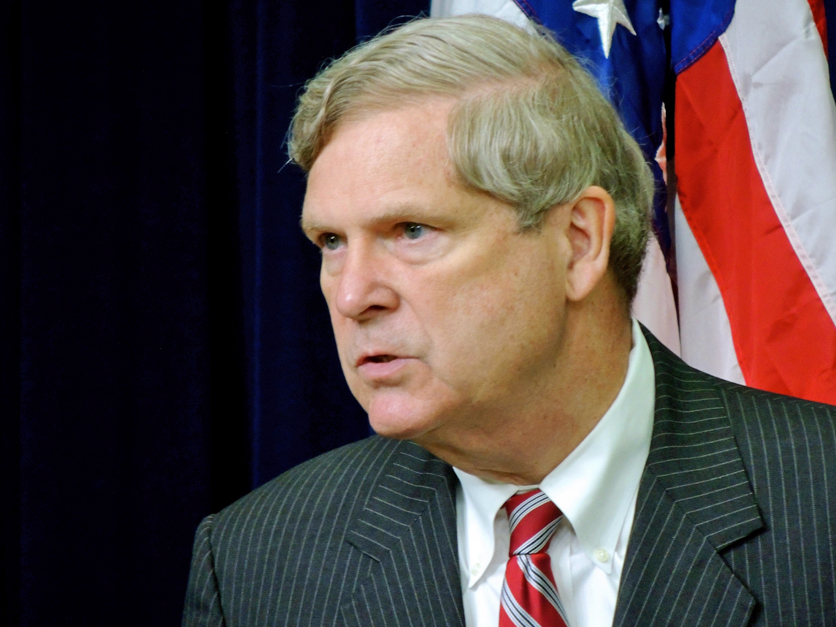Many different political voices advocated for agriculture at this year’s Iowa Land Investment Expo, held in Des Moines on Jan. 26, but it was hard to tell the Democrats from the Republicans on many issues.
For example, Democrat Tom Vilsack, a former agriculture secretary under President Obama and current CEO of the U.S. Dairy Export Council, and Iowa’s current Secretary of Agriculture Bill Northey, a Republican, were two of the headliners.
Northey was nominated to serve in a key USDA position and was approved by the Senate Agriculture Committee in October. But his Senate confirmation is still being blocked by Sen. Ted Cruz, R-Texas, over concerns about implementation of the Renewable Fuel Standard.
Northey expressed optimism that lawmakers will finally allow his nomination to be considered on the Senate floor, but focused most of his comments on recent steps taken by state lawmakers to improve water quality.
“This week, the Iowa Legislature passed some legislation that over the next 12 years will spend $282 million on water quality, non-regulatory efforts” Northey stated. “The biggest negativity expressed in the conversation about the water quality funding bill this last week was it wasn’t big enough” he added.
Northey said he was “really proud of the breadth of support” for water quality improvement.
“We’re a long way from where we need to be, but the recently passed legislation represents a big step.”
When Vilsack spoke, he joined master of ceremonies Mike Pearson in encouraging the audience to contact their legislators and get Northey’s confirmation moving in the right direction.
“I’d like to add my voice to Mike’s voice about Bill Northey. It is really imperative that the FSA offices, the NRCS offices have leadership from Washington. I understand and appreciate Senator Cruz’s concerns, but there are ways to work through those'” Vilsack said.
“It’s not Bill Northey that’s being held hostage here, it’s every farmer seeking assistance and help from a local FSA office” he said..
Vilsack spent the rest of his time deliberating on the challenges and opportunities facing America’s export markets. Agriculture provides nearly 43 million jobs and account for 28 percent of the United States’ total job force. However, he said, the dairy export sector makes up a very small portion of those exports, while supporting about 100,000 jobs.
“In the dairy industry we’re just getting into the export game, so one out of every seven tankers that you see on the road hauling milk, that milk’s headed someplace outside the United States” Vilsack stated.
One major challenge faced by the dairy industry is the current renegotiation of the North American Free Trade Agreement.
“So we have to negotiate NAFTA with an eye on making sure that we don’t create an opening for our Mexican friends to turn to Europe,” Vilsack noted.
Mexico currently sources 77 percent of its dairy needs from the United States, and, while the NAFTA talks continue, Mexico has taken up talks with the EU.
“The Europeans have been incredibly aggressive in their bilateral trade discussions and what they want from Mexico in exchange for giving them a promise” Vilsack stressed. “They would like protection of certain cheese types” he stated, referring to geographical indicator terms like parmesan, asiago, and mozzarella. “That would put us in a position, where we’re now producing world classes cheese, to say to the consumer, 'Buy our cheese because it’s sort of, kind of, like asiago.' We just can’t call it that. I’m not a great marketer but I think that puts us at a competitive disadvantage” he added.

